- SIWI – Leading expert in water governance
- /
- Latest
- /
- 8 ways countries can boost climate action with the help of water
8 ways countries can boost climate action with the help of water
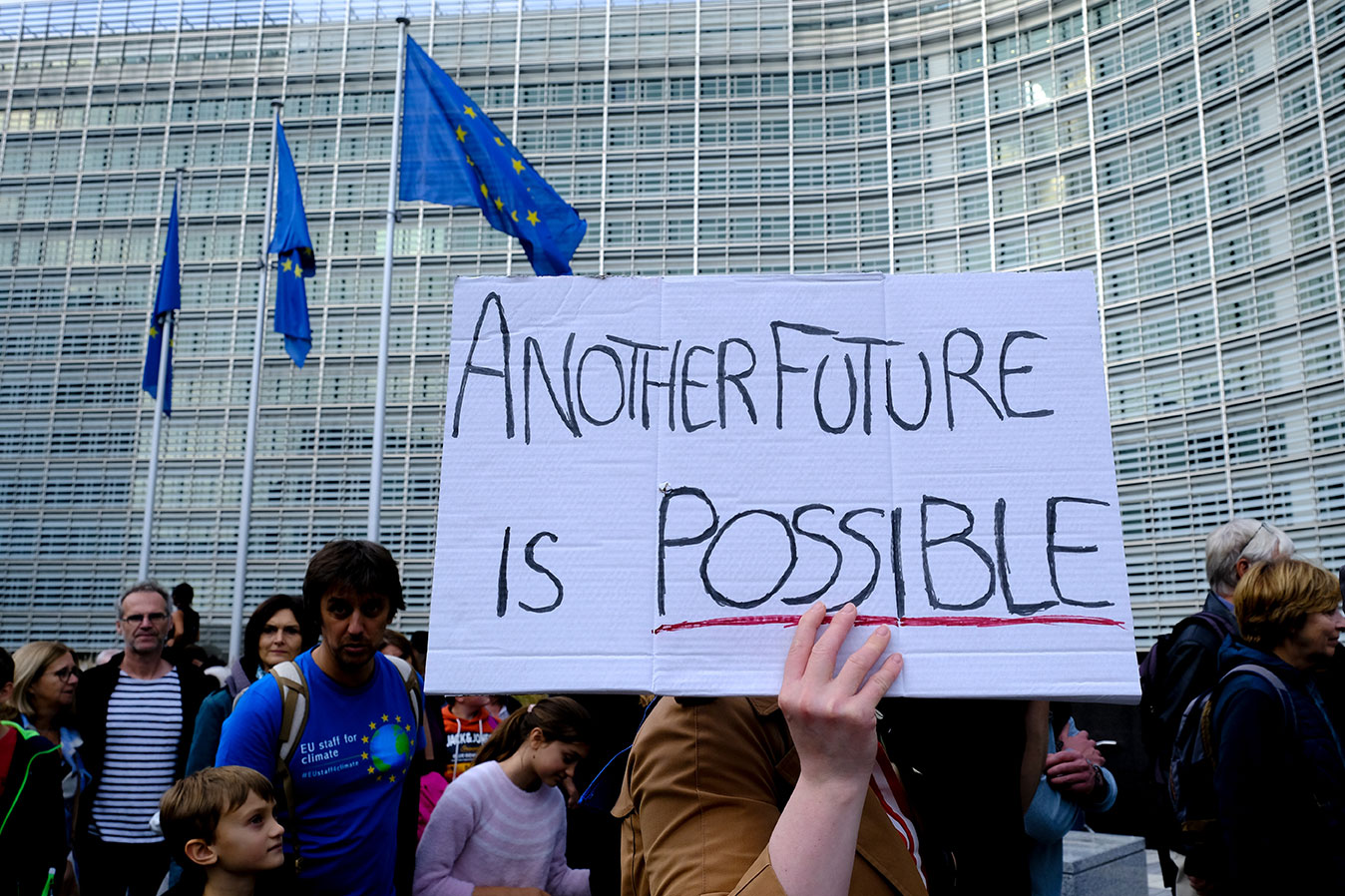
At the climate change meeting COP26, SIWI will be sharing how countries can apply water solutions to cut greenhouse gas emissions and improve their resilience. SIWI’s David Hebart-Coleman has identified eight ways countries can strengthen their climate plans with the help of water.
SIWI’s David Hebart-Coleman has analyzed the recent Nationally Determined Contributions (NDCs) that countries have submitted as part of their commitments under the 2015 Paris Agreement on Climate Change. All countries are expected to present enhanced NDCs ahead of the UN Climate Change Conference COP26 on 31 October to 12 November.
David Hebart-Coleman’s analysis, shows a rapidly growing interest in water-related climate solutions. Compared to the first round of NDCs in 2015, countries have also developed more sophisticated and detailed approaches with clearer targets.
A prominent trend is how nature-based solutions now feature in close to half of the submitted NDCs – in 2015 there were no such mentions. Also noticeable is how more countries are now taking action against water scarcity as part of their climate work. Furthermore, there is increased recognition of the importance of inclusion and gender aspects.
Still, there are many gaps where countries need to urgently take much bolder steps.
Here are eight perspectives that should be prioritized:
- Understand the role of the water sector. Few countries have set specific mitigation targets or activities for the water sector, despite the significant greenhouse gas emissions from the pumping and distribution of water. Several states noted that this activity can be highly significant within various sectors such as agriculture and urban water supply, but any emissions considerations were generally included within electricity targets. Countries need to focus much more on the impact the water sector has on climate – it is estimated that the water sector alone can eliminate 10 per cent of global greenhouse gas emissions.
- Increase climate-proofing of WASH-related infrastructure. Though countries are starting to realize the threats climate change poses to water and sewage systems, many need a much more systematic approach to climate-proof these services.
- Include indigenous peoples in decision-making. Several parties included measures and activities relating to the inclusion of Indigenous Peoples, most notably in Latin America as well as South-East Asia. However, even when references to indigenous peoples were included it was very rarely in specific connection with water measures or water governance.
- Focus on water governance. Overall, references to governance around water is highly limited. New forms of water and climate change governance may be required over the long term, whether in the development of new institutions or through the evolution of existing ones like river basin organizations. Governance changes may be connected to the role of basin and watershed planning that will be important in implementing national priorities at local levels.
- Invest more in nature-based solutions. Whereas interest in nature-based solutions has jumped since 2015, they are still not included in half of the NDCs. This is cause for concern since they can play a key role in both climate mitigation and adaptation with research indicating that nature can help with around 30 per cent of the greenhouse gas reductions needed by 2030.
- Integrate different measures. NDCs can become even more effective through approaches and activities that help to integrate measures from different sectors, both at national and at subnational levels such as river basins. These include approaches such as Ecosystem Based Adaptation, Nature-Based solutions, water governance, and water security.
- Improve analyses across sectors. Most NDCs only discuss water and climate within different sectors but few broaden the analysis to include consequences across sectors. However, a few NDCs, such as those from Nigeria, Sierra Leone, and Sri Lanka did note some measures which explicitly recognized that one activity had benefits for other sectoral uses of water. Approaches including integrated water resources management (IWRM) and basin/watershed planning may be useful in better recognizing local interactions.
- Transboundary considerations should be highlighted. Whilst the NDCs are necessarily concerned with national commitments, it is also true that many countries are highly reliant on water sources shared with other countries. Transboundary cooperation over shared waters could be a powerful tool for countries to strengthen their climate resilience that must not be forgotten, but more action is needed now.
Water and Mitigation at COP26
Listen to David Hebart Coleman in the Water and Mitigation: From Science to Climate Action session 1 November at 2pm UK time. The session is moderated by SIWI’s Executive Director Torgny Holmgren and also features SIWI’s Malin Lundberg Ingemarsson who will present initial results from a forthcoming report on climate and water mitigation.
Tune into the SIWI-led Water PavilionMore around the Nationally Determined Contributions (NDCs)

Analysis of NDC enhancement: Possible gaps
- Water and the 2030 Agenda
- Water and climate
- Transboundary Water Cooperation
- Water cooperation

Analysis of NDC enhancement: Integrative approaches
- Water and the 2030 Agenda
- Water governance
- Water and climate
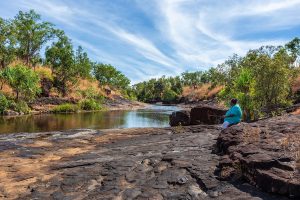
Analysis of NDC enhancement: Increased role for water and water-related activities
- Indigenous knowledge
- Water and the 2030 Agenda
- Water and climate
- Gender and water
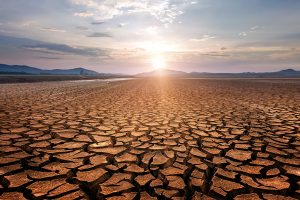
Analysis of NDC enhancement: First impressions
- Water and the 2030 Agenda
- Water governance
- Water and climate
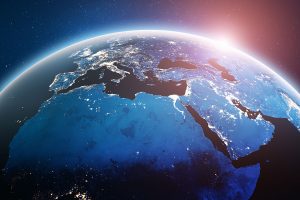
Analysis of NDC enhancement: Foundations
- Water and the 2030 Agenda
- Water and climate
- Indigenous knowledge
Most recent
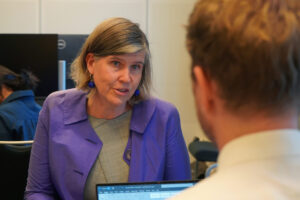
Bridging Borders: A Conversation with Meike van Ginneken
- Transboundary Water Cooperation
- Water cooperation
- Water and Peace
- Water diplomacy
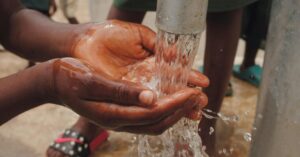
Transforming relations through WASH access
- Water, Sanitation and Hygiene (WASH)
- Water and Peace
- Resilience through water
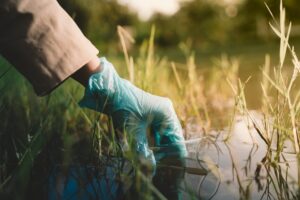
How can we make the manufacturing of antibiotics safer?
- Health and water
- Pharmaceuticals and water
- Wastewater

Reflections from World Water Week 2024: Unlocking Water Cooperation Solutions
- Human rights and water
- Indigenous knowledge
- Transboundary Water Cooperation
- World Water Week

Join us on a journey through 2023

The world can’t afford a water dry Summit of the Future
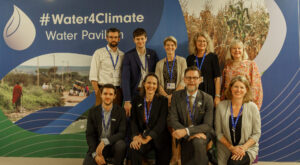
COP28: Water rises up in the climate agenda


